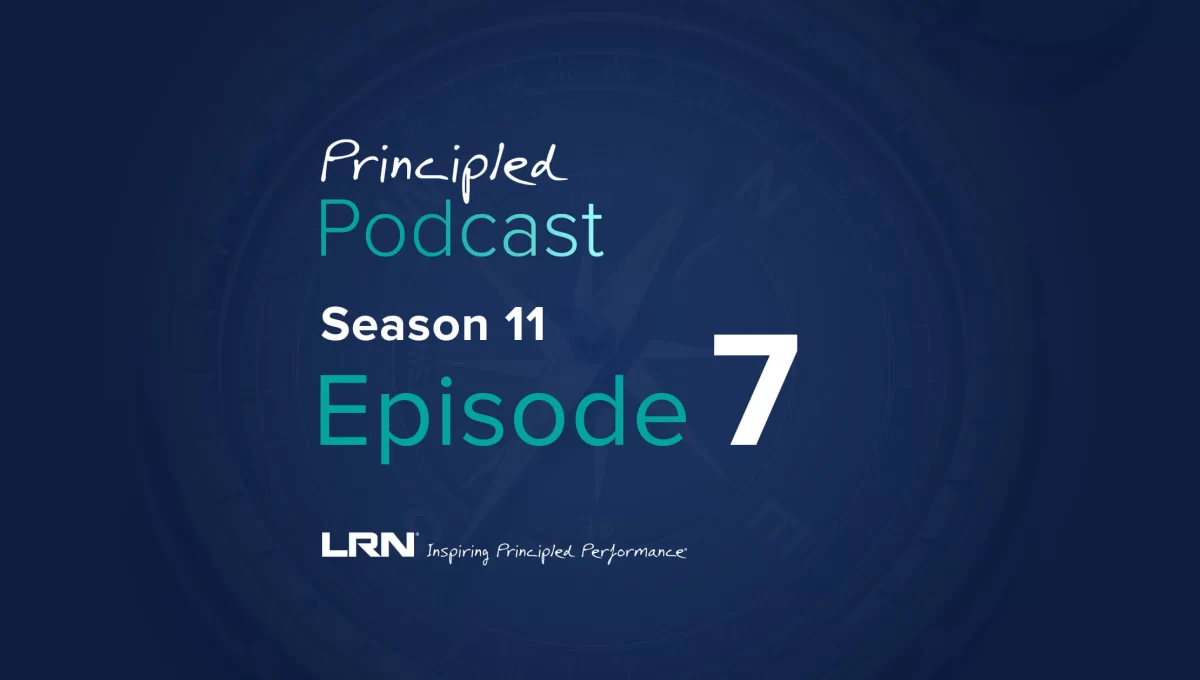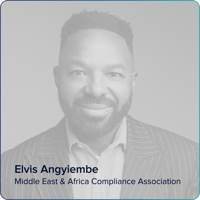Amid the escalating severity and frequency of new risks worldwide, Ethics and Compliance (E&C) initiatives are doubling down on efforts to mitigate these risks. This critical focus is underscored in LRN’s latest 2024 Ethics & Compliance Program Effectiveness Report, which draws insights from over 1,400 E&C professionals globally. Our findings reveal that values-driven programs not only prove most effective but also exhibit a robust correlation with risk reduction and enhanced business outcomes. In light of this evolving risk landscape, how are E&C programs in regions such as the Middle East adapting? Furthermore, what do the everyday practices of global best standards entail for programs operating within this region?
In this episode of the Principled Podcast, host Eric Morehead is joined by Elvis Angyiembe, the co-founder of the Middle East and Africa Compliance Association (MEACA). Elvis joined us last season to discuss the E&C priorities of companies in the Middle East. Today, they discuss key findings from the global edition of the 2024 Ethics & Compliance Program Effectiveness Report and how they apply to programs in that region.
Guest: Elvis Angyiembe
Elvis Angyiembe is co-founder and co-chair of the Middle East and Africa Compliance Association (MEACA). He has experience working for multinational companies, helping them manage significant legal and compliance matters. He has supported three companies under deferred prosecution agreements with the US Department of Justice. He has lived in Cameroon, Germany, the US, South Africa, and Dubai. He holds a Juris Doctorate (JD) from Thurgood Marshall School of Law in Houston, Texas, and a bachelor’s degree in criminology from the University of Maryland in College Park, Maryland.
Host: Eric Morehead

Eric Morehead is a member of LRN’s Advisory Services team and has over 20 years of experience working with organizations seeking to address compliance issues and build effective compliance and ethics programs. He conducts program assessments and examines specific compliance risks, drafts compliance policies and codes of conduct, works with organizations to develop and improve compliance processes and tools, and provides live training for Boards of Directors, executives, managers, and employees.
Eric ran his consultancy for six years, advising clients on compliance program enhancements and assisting in creating effective compliance solutions.
Eric was formerly the Head of Advisory Services for NYSE Governance Services, a leading compliance training organization. In this position, he was responsible for all aspects of NYSE Governance Services’ compliance consulting arm.
Before joining NYSE, Eric was an Assistant General Counsel of the United States Sentencing Commission in Washington, DC. Eric served as the policy team chair that amended the Organizational Sentencing Guidelines in 2010.
Eric also spent nearly a decade as a litigation attorney in Houston, Texas, where he focused on white-collar and regulatory cases and represented clients at trial and before various agencies including SEC, OSHA, and CFTC.
Get a copy of the Global edition of LRN’s 2024 Ethics & Compliance Program Effectiveness Report.
Connect with the Compliance Podcast Network at:
LinkedIn: https://www.linkedin.com/company/compliance-podcast-network/
Facebook: https://www.facebook.com/compliancepodcastnetwork/
YouTube: https://www.youtube.com/@CompliancePodcastNetwork
Twitter: https://twitter.com/tfoxlaw
Instagram: https://www.instagram.com/voiceofcompliance/
Website: https://compliancepodcastnetwork.net/





